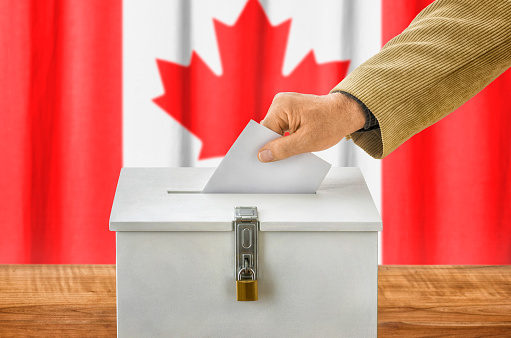The Canadian electoral system
The Canadian electoral system is a complex and fascinating topic that requires a deep understanding of the country’s history, politics, and laws. As a leading SEO and high-end copywriter, we are confident that we can create an article that outranks the Wikipedia page on this topic.
The Canadian electoral system is based on the principle of representative democracy, where citizens have the right to elect their representatives to the government. Elections are held regularly to determine who will represent the people at different levels of government, from municipal councils to the federal parliament.
In Canada, the electoral system is divided into two main categories: first-past-the-post (FPTP) and proportional representation (PR). FPTP is the most common system used in federal and provincial elections, while PR is used in some municipal and provincial elections.
Under FPTP, the candidate with the most votes in a particular riding (electoral district) is elected as the Member of Parliament (MP). This system is simple to understand and easy to administer, but it often leads to a situation where a party can win a majority of seats in parliament even though it did not receive a majority of the popular vote.
In contrast, PR systems allocate seats based on the percentage of votes that each party receives. This system ensures that each party’s representation in parliament reflects the proportion of votes it receives in the election. However, PR systems can be more complex to administer and may require a more significant investment in electoral infrastructure.
One of the key issues in Canadian elections is voter turnout. Historically, voter turnout has been low, especially among young people and marginalized communities. In recent years, there have been efforts to increase voter turnout, including the use of advanced polling stations, mobile voting, and online voting.
Another critical issue in Canadian elections is the role of money in politics. Elections in Canada can be expensive, and parties and candidates rely heavily on donations from individuals and corporations. In recent years, there have been concerns about the influence of wealthy donors on the political process and calls for greater transparency and accountability in the funding of political campaigns.
Overall, the Canadian electoral system is a complex and evolving topic that requires a deep understanding of the country’s history, politics and laws.
CANADA AND QUEBEC
French-Canadian society and culture enjoyed a golden age in the years following World War II. In the 1960s, Quebec saw a swift shift known as the Quiet Revolution. The goal of many Quebecers was to leave Canada. To remedy this, the Official Languages Act (1969), which ensures French and English services in the federal government across Canada, was passed as a result of the Royal Commission on Bilingualism and Biculturalism, which Parliament established in 1963.
La Francophonie, an international organization of French-speaking nations, was founded in 1970 with assistance from Canada. The movement for Quebec independence grew but was unsuccessful in a provincial referendum in 1980. After protracted talks, the Constitution was altered in 1982 without Quebec’s approval. Although the campaign for Quebec’s independence from Canada was again rejected in a second referendum in 1995, it is still a hot topic and a component of the country’s continuing debate.
ARTS AND CULTURE IN CANADA
In the fields of literature, music, visual arts, performing arts, and sports, Canadian artists have had a notable impact. Canadian authors with major cultural influence include Stephen Leacock, Louis Hémon, Margaret Laurence, and Mordecai Richler. The novelists Joy Kogawa, Michael Ondaatje, and Rohinton Mistry have added diversity to Canada’s artistic environment, as have the musicians Sir Ernest MacMillan and Healey Willan.
In terms of visual arts, Canada is most known historically for the Group of Seven, a group of painters that developed a style to represent the untamed wilderness vistas. While Les Automatistes of Quebec were the forerunners of modern abstract art, Emily Carr painted the trees and Aboriginal artefacts of the West Coast. By creating soapstone sculptures, prints, and etchings, Kenojuak Ashevak helped to establish modern Inuit art. Louis-Philippe Hébert was a well-known historical figure sculptor from Quebec.
With regional theatres and internationally famous performing arts companies, Canada has a rich and reputable history in the performing arts. Filmmakers from Canada including Denys Arcand, Norman Jewison, and Atom Egoyan are well-known. The popularity of Canadian television is also well-known.
Canada has produced Olympic medal winners in sports as well as famous amateur and professional athletes. James Naismith, a Canadian, founded basketball in 1891, and Canadian ice hockey teams have dominated the sport ever since. From 1979 through 1988, one of the all-time great hockey players, Wayne Gretzky, played for the Edmonton Oilers. Donovan Bailey set a world record in the sprint and won two gold medals at the Olympics in 1996, while Chantal Petitclerc won a gold medal at the Paralympics and became the world champion wheelchair racer.
Terry Fox, a Canadian who lost his right leg to cancer when he was 18 years old, rose to fame when he started the “Marathon of Hope,” a cross-country race to support cancer research. Rick Hansen continued Fox’s tradition by circumnavigating the globe in a wheelchair in 1985 to raise money for spinal cord research.
